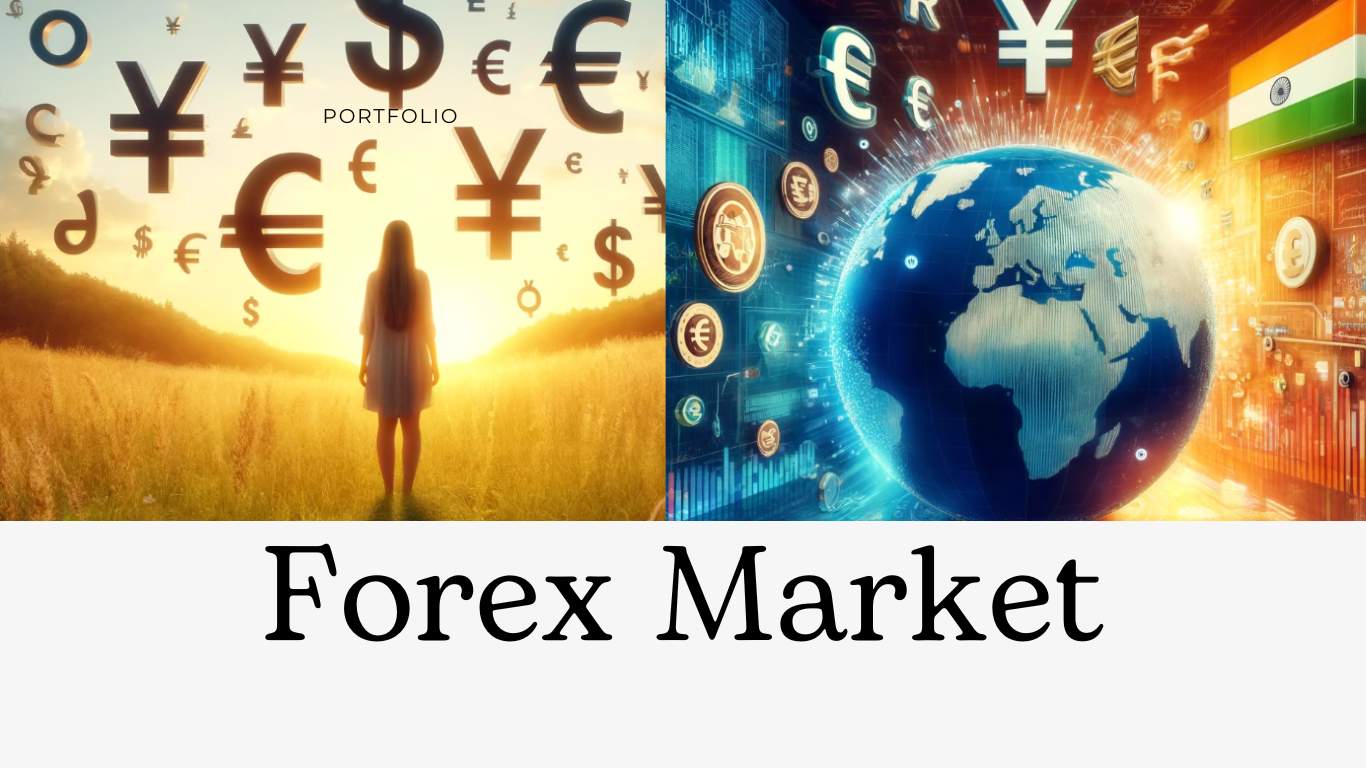Explore the significance of the Forex Market, the world’s largest financial marketplace, and discover why it’s crucial for every Indian to understand its workings for better financial insight and opportunities. The foreign exchange market, commonly known as the Forex market, is the largest and most liquid financial market in the world. For Indians, understanding the Forex market is not just a matter of financial literacy but a necessity in the global economy. Here’s why every Indian should have a basic understanding of the Forex market.
What is the Forex Market?
- The Global Currency Exchange: The foreign exchange market (forex or FX) is the world’s largest financial market where currencies are bought, sold, and exchanged. It’s where you can trade one country’s currency for another.
- Decentralized and 24/7: Unlike traditional stock markets, the forex market isn’t located in a single physical exchange. It’s a decentralized, over-the-counter (OTC) market, meaning transactions happen directly between participants around the globe, 24 hours a day, 5 days a week.
- Determines Exchange Rates: Forex trading is what determines the ever-fluctuating exchange rates between currencies. For example, how many US Dollars (USD) you need to buy one Euro (EUR).
Global Economic Integration
Last 10 years we all heart about the global level investment in India and make in India program. Any investment done through Forex market. In India people know about the Share market but very limited knowledge of Forex market. Now days making in India and export if foreign currency is most profitable business. The Forex market is a critical component of the global economy, facilitating international trade and investments by enabling currency conversion. For a country like India, which is increasingly integrating with the global economy, participation in the Forex market is essential. Whether it’s for importing electronics, exporting textiles, or attracting foreign investments, currency exchange is at the heart of these transactions.
Who Participates in the Forex Market?
- Banks: The big players, facilitating massive currency transactions for clients and themselves.
- Commercial Companies: Companies engaging in international trade need to exchange currencies for business.
- Central Banks: They influence exchange rates through policies and market interventions.
- Investment Firms: Hedge funds and investment managers trade currencies for profit.
- Retail Traders: Individuals like you and me can speculate on currency movements through forex brokers.
Investment Opportunities
For Indian investors, the Forex market offers a plethora of opportunities. Unlike traditional stock markets, the Forex market operates 24 hours a day, providing the flexibility to trade according to one’s schedule. Moreover, with the rise of online trading platforms, access to the Forex market has become easier than ever. Understanding Forex trading can open up new investment avenues for Indians looking to diversify their portfolios across currencies. Other option of trading is using Forex broker like Botbro Robot trading platform. BotBro is one of the world’s leading Forex trading Robot and aims to revolutionize the way people invest and enhance investors’ financial education.
Risk Management
The volatility of the Forex market presents both opportunities and risks. For businesses involved in international transactions, fluctuations in exchange rates can significantly affect profits. By understanding the dynamics of the Forex market, Indian businesses can better manage currency risk through hedging and other financial instruments. This knowledge is also crucial for individual investors to protect their international investments from exchange rate movements.
Why Does the Forex Market Exist?
- Facilitates Global Trade: Imagine a US company importing French wine. They need Euros to pay the supplier, which they obtain through forex markets.
- Investment and Speculation: Traders and investors seek to profit from changes in exchange rates. If they think the USD will strengthen against the Japanese Yen (JPY), they buy USD/JPY.
- Hedging: Companies and investors can use forex to protect themselves against unfavorable currency movements that might impact their businesses.
Economic Indicators
The Forex market is a reflection of the global economic situation. Exchange rates are influenced by a variety of factors, including interest rates, inflation, and political stability. For Indians, keeping an eye on the Forex market can provide insights into the global economic environment and its potential impact on India. It helps in making informed decisions, from investing in foreign markets to planning a vacation abroad.
Personal Finance
For individuals, the Forex market is directly relevant when traveling abroad, studying, or working internationally. Understanding how to get the best exchange rates and the timing for currency exchange can lead to significant savings. Moreover, for those receiving remittances from abroad, knowledge of the Forex market can help in optimizing the timing and method of transfers.
Key Things to Remember
- Highly Liquid: The forex market is massive, with trillions of dollars traded daily, making it highly liquid (you can usually buy or sell currencies quickly).
- Volatile: Currency prices can fluctuate significantly due to news, economic data, and geopolitical events.
- Leverage: Forex brokers often offer leverage, amplifying potential gains and losses.
Conclusion
The Forex market’s role in the global economy cannot be overstated, and for a country like India, with its growing global footprint, understanding this market is crucial. Whether you are a business owner, an investor, or just someone planning to travel abroad, a basic understanding of the Forex market can provide a competitive edge. It’s not just about financial transactions; it’s about making informed decisions in a globally interconnected world.
In the age of globalization, being knowledgeable about the world’s largest financial market is not just an advantage but a necessity for every Indian.
